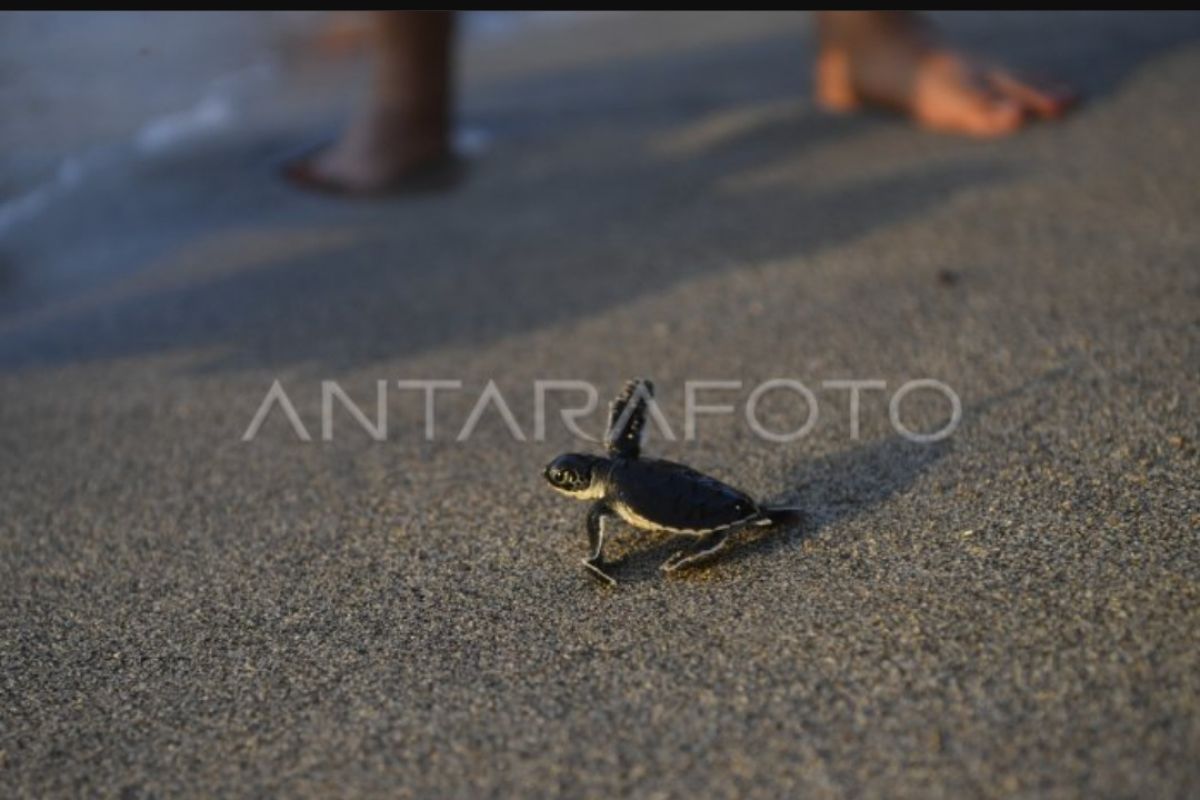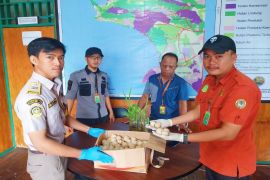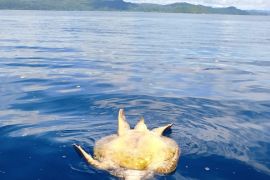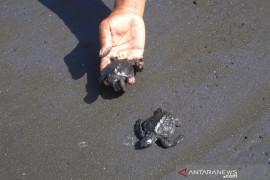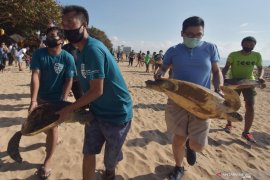Indonesia actually has six out the seven sea turtle species in the world, but sadly there are only four species routinely sighted in the Indonesian waters now.Jakarta (ANTARA) - Marine and Shoreline Ecosystem Manager (PELP) Main Expert at the Marine Affairs and Fishery Ministry Agus Dermawan stated that human intervention on top of natural factors had become a threat to the sea turtle ecosystem.
"Human intervention, whether through poaching or shoreline development, threatens the sea turtle ecosystem," Dermawan remarked during the "Penyu dan Paloh" book unveiling streamed online, Thursday.
In addition to human intervention, abrasion and climate change became natural factors that threatened the sea turtle ecosystem.
Temperature affects the growth of sea turtles inside the eggs. The higher the temperature, the greater the likelihood of a female sea turtle being hatched out of the egg, he explained.
"This affects the balance in the number of male and female sea turtles. Female sea turtles will outnumber the males and hinder the turtle breeding process," Dermawan noted.
Since 1980, the government has been striving to protect the sea turtle ecosystem by issuing regulations related to sea turtle protection, he remarked.
However, as the sea turtle population continued to decline, the government issued Law No. 7 of 1999 and Law No. 6 of 2007 on animal conservation.
"Indonesia actually has six out of the seven sea turtle species in the world, but sadly, there are only four species routinely sighted in the Indonesian waters now," he pointed out.
Six sea turtle species spotted in the Indonesian waters comprise the green sea turtle (Chelonia mydas), hawksbill sea turtle (Eretmochelys imbricata), and olive ridley sea turtle (Lepidochelys olivacea).
Moreover, the leatherback sea turtle (Dermochelys coriacea), the loggerhead sea turtle (Caretta-caretta), and the flatback sea turtle (Natator depressa) live in these waters.
To strengthen the protection of the sea turtle ecosystem, the government issued the National Action Plan (RAN) on turtle conservation for the period of 2016 to 2020, and renewed the action plan for the 2022-2024 period.
The ministry expects that various efforts made by the government, private parties, and the public can result in better protection and preservation of the sea turtle ecosystem.
Related news: Wakatobi plants mangrove trees, releases 100 green turtle babies
Related news: Saving sea turtles paramount to maintaining healthy marine ecosystem
Related news: Ministry thwarts sale of sea turtle eggs via social media
Translator: Sean Filo M, Fadhli Ruhman
Editor: Sri Haryati
Copyright © ANTARA 2023
